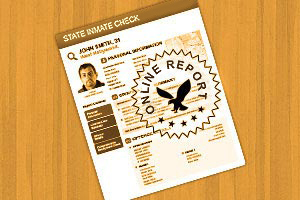Oklahoma Public Records
The mission of Oklahoma State Records is to provide every person the right to detect, obtain, preview, and examine public records, ensuring residents of the state of Oklahoma are provided access in accordance with the Oklahoma Open Records Law, which rules in favor of public access to state records.
The main goal is to enable all members of the general public the right to access Oklahoma state public records easily, efficiently, and concisely, without the requester having to specify a “need to know” unless expressly stated otherwise.
Oklahoma State Records provides information about the following subjects: criminal records, court records, and vital records, including over 35 million public records.
Are Oklahoma Records Public?
In Oklahoma, most records generated or maintained by government agencies are public records. The Oklahoma Open Records Act defines public records as all documents created, received, owned, and used by public bodies, public officials, or any of their representatives while performing official duties.
What is Considered Public Information in Oklahoma?
Oklahoma public records may include the following:
- Public bankruptcy records
- Public arrest records
- Public divorce records
- Public criminal records
- Public marriage records
- Public court records
- Public inmate records
- Public sex offender records
- Public property records
- Public birth records
- Public death records
Per the Oklahoma Open Records Act, members of the public can obtain public records by contacting the government agency in charge of the records. As established in the definition of the public record, Oklahoma public records may exist in different formats such as a book, paper, photograph, microfilm, data files, computer tape, disk, record, sound recording, film recording, video record, or other material used to store information.
Note, Oklahoma public records do not include any non-government activities. Private activities by government officials are not considered open to the public.
How Do I Find Public Records in Oklahoma?
Interested persons who wish to obtain public records in Oklahoma must contact the public body responsible for keeping such records. As established under the Oklahoma Open Records Act, public bodies must respond promptly to all public records requests. That said, the process of obtaining public records differs from one public body to another. However, requestors can obtain copies of a record by following these quick steps:
Decide on the Type of Record
The first step to obtaining public records in Oklahoma is to identify the type of record. Interested persons must provide relevant information about the record they seek. For instance, is the record a vital record or property record? Some other information that may be required includes names of the parties involved, date or period to be covered, case number, and more. More often than not, record requests with vague descriptions are denied.
Contact the Public Body in Charge
Different public bodies are responsible for specific records. For instance, the Oklahoma County Sheriff Department provides access to inmate records within its jurisdiction, while the Oklahoma State Courts grant access to its court records. Therefore, interested persons must contact the specific public body in charge of the record they seek.
Prepare a Written Request
Interested persons who wish to obtain Oklahoma public records may have access to online request forms, depending on the public body in charge. Although, some departments or bodies recommend that requestors make their requests in writing. A written request enables record custodians to track requests with ease and reduce confusion. Information required in a written request may include:
- A detailed description of the record
- The full name of the requestor
- The contact details of the requestor (phone number, address, and more.)
- The date range of the record
- The preferred delivery method for the record
- Additional information that may aid the record requests
Review and Submit the Request
Here, requestors may review the information provided in their request and proceed to submit via the available channels. Depending on the public body responsible for the record, requestors may be able to submit in person, by mail, by fax, or online. For instance, interested persons may choose to visit the public body office location or send a mail to the official mail address. Most times, the official contact details of a public body are listed on their website.
Using Third-Party Sites
City Records
Public city records may also be accessible from third-party websites. These non-government platforms come with intuitive tools that allow for expansive searches. Record seekers may either opt to use these tools to search for a specific record or multiple records. However, users will need to provide enough information to assist with the search such as:
- The name of the subject involved in the record (subject must be older than 18 or not juvenile)
- The address of the requestor
- A case number or file number (if known)
- The location of the document or person involved
- The last known or current address of the registrant
Third-party sites are not sponsored by government agencies. Because of this, record availability and results may vary.
Public Records
Public records can also be accessed from third-party websites. These third-party public records aggregate websites offer search services that are non-geographically limited, making the search result expansive and typically straightforward. However, users will need to provide enough information to assist with the search, such as:
- The name of the subject involved in the record as long as the subject is not a juvenile
- The last known or location of the record subject
Third-party public records search websites are not government-sponsored services. Therefore, the availability and accuracy of results can vary.
How Do I Lookup Public Records for Free in Oklahoma?
Looking up public records in Oklahoma for free depends on different factors such as the type of record, purpose, and the public body in charge. Inspecting public records only provides a cost-free alternative for individuals who ask, “where can I search public records for free?”. The Oklahoma Open Records Act permits public bodies to grant interested persons access to their records for free. Such persons may only pay a fee if it involves duplicating the records or for commercial purposes. Requestors who wish to inspect public records in Oklahoma may contact the custodian’s office during business hours.
As an alternative, interested persons can use the online resources provided by certain public bodies to look up public records for free in Oklahoma. For instance, the Oklahoma Department of Corrections maintains and provides access to the Sex and Violent Offenders Registry. Any interested person can inspect sex offender information in Oklahoma using any of the search combinations available on the database. Examples of such combinations include first name, last, address, city, county, zip code, offense, and more.




